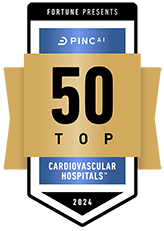A computerized tomography (CT) scan is a type of X-ray that uses a computer to make cross-sectional images of the body.
CT angiography combines a CT scan with an injection of special dye to produce pictures of blood vessels and tissues in a part of your body. The dye is injected through an intravenous (IV) line started in the arm or hand. Cardiac CTA focuses on producing images of the heart’s structure and function, including valves and chambers.
Reasons for CT Angiography
CT angiography may be used if you have an abnormality that involves the blood vessels in any part of the body — including the brain, heart, lungs, kidneys or other parts of the body. Doctors may use the information from this test to learn more about your condition or to plan treatment. Information from a CT angiogram may help prevent a stroke or a heart attack.
Some reasons to have a CT angiogram include:
- To find an aneurysm (a blood vessel that has become enlarged and may be in danger of rupturing)
- To find blood vessels that have become narrowed by atherosclerosis (fatty material that forms plaques in the walls of arteries)
- To find abnormal blood vessel formations inside your brain
- To identify blood vessels damaged by injury
- To find blood clots that may have formed in your leg veins and traveled into your lungs (pulmonary embolism)
- To evaluate a tumor that is fed by blood vessels
CT Coronary Angiography
CT coronary angiography specifically looks at the blood vessels that supply the heart. It is a highly accurate method of detecting plaque caused by cholesterol deposits. The plaque can cause narrowing of the heart vessels and lead to chest pain or "angina." It can even cause heart attacks. Together these conditions are labeled as coronary artery disease. By detecting plaque at an early stage, CT coronary angiography helps with the early start of preventive medical therapy — particularly statins — which lower cholesterol, decrease or prevent plaque progression and reduce the chance of heart attacks.
CT coronary angiography is completely noninvasive — no incisions needed. It can replace the need to perform cardiac catheterizations that require inserting a tube through an artery in your leg, arm or neck and threading it through to your heart. CT coronary angiography offers a safe, rapid and convenient method of assessing blockage in the blood vessels of the heart — with no post-procedure restrictions or downtime.
What to Expect
CT coronary angiography is performed after injecting an intravenous dye through the arms. The dye illuminates the blood vessels of the heart, and the CT scanner captures the images of the blood vessels in a few seconds. For a good quality heart scan, your heart rate needs to be around 60 beats per minute, so you may need to take an oral medication to bring the heart rate down.
Just prior to scanning, a dissolvable nitroglycerine tablet is placed under your tongue to increase the size of the blood vessels and make them readily visible under the scanner.
Who Should Have a CT Coronary Angiography
You provider may order a CT coronary angiogram if you have coronary artery disease symptoms, but are not known to have plaque or narrowing of the heart vessels by a prior heart catheterization or chest CT.
The decision to perform CT coronary angiography should be made in the right clinical context and should be solely decided on the basis of a full assessment by your physician.
There are few risks associated with a CT coronary angiogram. Some patients may not be able to have CT coronary angiography, particularly if they have impaired kidney function or an inability to take nitroglycerine or medications that lower your heart rate. If you have a known allergy to intravenous dye, you will need to pre-medicate to prevent contrast-mediated allergy.
Learn more about other heart and vascular diagnostic tests we offer.
Our Cardiovascular Program continues to receive recognition as one of the top programs nationally. We are honored to provide high-quality, effective care for even the most high-risk patients.
-
Check Out Our Heart and Vascular Program Awards and Recognition
In its 2024 Specialty Excellence Awards, Healthgrades recognized Froedtert Hospital as one of America’s 50 Best Hospitals for Cardiac Surgery, one of America’s 100 Best Hospitals for Cardiac Care and one of America’s 100 Best Hospitals for Coronary Intervention, as well as other specialty achievements in various areas.

For the second year in a row, Froedtert Hospital was identified as one of the nation’s 50 Top Cardiovascular Hospitals™ according to an independent quality analysis based on a balanced scorecard provided by PINC AI™, and reported by Fortune. The hospitals recognized in the top 50 operated at lower cost and had better outcomes, recording significantly higher inpatient survival rates, fewer patients with complications, lower readmission rates and up to nearly $10,000 less in total costs per patient case. According to the study’s analysis, if all hospitals operated at the level of this year’s top performers, there could be 7,600 fewer deaths due to heart disease, 6,700 fewer bypass and angioplasty patients who suffer complications, and more than $1 billion in costs saved for the 2024 study year. Froedtert Hospital was ranked in the category of top teaching hospitals with a cardiovascular residency program. In this cohort of hospitals, Froedtert Hospital was ranked No. 4 in the country. No other hospital in Wisconsin was recognized with this national distinction.
The Society for Vascular Surgery's Vascular Quality Initiative (SVS VQI) has awarded Froedtert Hospital three out of three stars for its active participation in the Registry Participation Program. The mission of the SVS VQI is to improve patient safety and the quality of vascular care delivery by providing web-based collection, aggregation and analysis of clinical data submitted in registry format for all patients undergoing specific vascular treatments. The VQI operates 14 vascular registries.
The American Heart Association recognized Froedtert Hospital with its Get With the Guidelines® Heart Failure Gold Plus Award. In addition, the hospital was recognized on the AHA’s Target: Heart Failure(SM) Honor Roll and received the AHA’s Target: Type 2 Diabetes Honor Roll™ award.
The American Heart Association also recognized Froedtert Hospital with its Get With the Guidelines® — Coronary Artery Disease Mission: Lifeline STEMI Receiving Silver Plus and Mission: Lifeline NSTEMI Silver awards. These awards demonstrate our commitment to improving care by adhering to the latest treatment guidelines and streamlining processes to ensure timely and proper care for heart attacks.
The American Heart Association recognized Froedtert Hospital with its Get With the Guidelines® AFib Gold Award.
The Cardiovascular Intensive Care Unit (CVICU) and Neurosurgical Intensive Care Unit (NICU) at Froedtert Hospital have each received a silver-level Beacon Award for Excellence from the American Association of Critical-Care Nurses. This award recognizes unit caregivers who successfully improve patient outcomes and align practices with AACN’s six Healthy Work Environment Standards. Receiving this national three-year award with gold, silver and bronze designations, marks a significant milestone on the path to exceptional patient care and achieving a healthy work environment.





